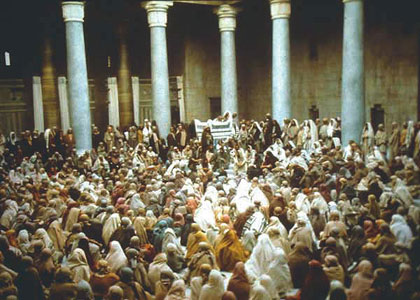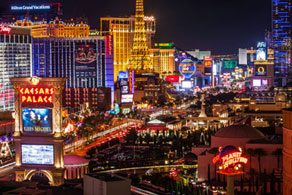
~ Reflection ~
by Deborah Beach Giordano
January 28, 2019
The Celebrity
When Jesus came home to Nazareth, his fame had spread throughout Galilee and turned him into a celebrity. In the synagogue he was given the privilege of reading the Scripture, and his teaching — and perhaps more? — was eagerly awaited by everyone.

I envision it as a sort of old-time “camp meeting.” A powerful itinerant preacher has come to address the congregation; energy surges through the assembly, the people are crowded together, tense, excited, expectant; everyone is primed and ready, waiting for the miracles to begin.
When he is handed the scroll of the prophet Isaiah, Jesus takes a few moments to find the desired passage. The suspense is mounting. Finally, in a clear, steady voice, he reads out Isaiah’s words of divine blessing and promise, hands the scroll back to the attendant, and then resumes his seat.
The only sound is the fluttering of a pair of doves who have taken shelter under the eaves; the room shimmers with anticipation.
“Here and now,” Jesus informs the assembly; that is the reality of this Scripture. This passage is not a history lesson or a dream for the future, but a present reality. In this place and at this time there is going to be divine healing, comfort, freedom, encouragement. It will so transform our community that God will be especially pleased with how our lives are being lived during the year to come.
He’s Ours!
Whoooo hooo. Isn’t that something!?” The congregation is electrified by Jesus’ announcement, which is greeted with a chorus of Amens.
Imaginations run wild: what sorts of wondrous deeds will he perform for us? Healings, for a start, the blind being given sight; there’s Elias, blind from birth, but he is old and has no family to support, so why bother with him? Miriam’s eyesight is failing — and you have to expect that Jesus will begin by taking care of his own family. But after that: what about cousin Jacob’s blinding headaches; my brother’s crippling debts, Agatha’s sister who cannot conceive? And then there’s that poor miserable leper who sits and begs alongside the road to Jerusalem.
 Say, if this catches on, it will really put Nazareth on the map. We can find a nice little cottage for Jesus, hire a couple of guards to control the crowds, maybe even build an inn where pilgrims can stay…..
Say, if this catches on, it will really put Nazareth on the map. We can find a nice little cottage for Jesus, hire a couple of guards to control the crowds, maybe even build an inn where pilgrims can stay…..
In an instant the Message has been lost. It is no longer about the merciful grace of God, but about how it can be of profit to us.
Protective Impulse
Encountering the wondrous, the powerful, the transforming, we are entranced, dazzled, delighted — and determined to protect it. From other people.
Our initial impulse is usually quite benign; once we recover from the shock of “the miraculous,” our rational minds take over: we recognize the power and influence inherent such things, and worry about the potential for misuse, which would be A Bad Thing. Therefore they need to be protected from abuse — and who better suited for the job than ourselves? Before long we have proclaimed ourselves to be the guardians, managers, and — insidiously — the controllers of the Inexpressible Holiness.
 Nobody gets in without a pass. From us.
Nobody gets in without a pass. From us.
Whether intentionally or not, through malice or naiveté or thoughtlessness, we have inserted ourselves between God and God’s people. We set ourselves up as arbiters of who is deserving, and how they are to approach the Eternal; make rules about what is “sacred” and what is “profane;” we attempt to block access to what is holy and good, to shut out the “unworthy:” to keep God to ourselves under lock and key.
It would be funny if the results weren’t so serious. How absurd to imagine that we have the ability to interfere with the outpourings of Divine grace and compassion. How ridiculous to imagine that we are worthy of judging the souls of others. And how wicked to dare to prevent communication between the Beloved and all those whom God loves.
God told Moses, “I will make all My goodness pass before you, and will proclaim My Name to you; I will be gracious to whomever I will be gracious, and I will show compassion on whomever I will show compassion.”
~ Exodus 33:18-19
The Grace of Disappointed Hopes
This explains why, in the same breath as he proclaims the Good News of God’s gracious mercy, Jesus tells the people that he won’t be performing any miracles in Nazareth. Perhaps he could see the glimmers of fame and fortune in their eyes, perhaps he already knew what they would expect, and recognized their desire to lay claim to him. Local boy makes good: Now you’ll really see what he can do for his own people.
In response to their unspoken fantasies, the Lord immediately issued a resounding NO. God can and does cause marvelous things to happen, but nothing is going to happen here.
And they were livid. What are we: chopped liver? Why can’t we have miracles like the people in Capernaum? We should be getting special treatment! After all, you’re one of us!!

Although it set them into a wild, destructive fury, Jesus blessed the people of Nazareth that day with his teaching. He protected them from the temptation to isolate, control, constrain, and claim the Divine. It simply cannot be done; it ought not to be tried.
The Word made flesh — the Inexpressible Holiness expressed in human form — is not the property of a particular place or time. Jesus is not a possession we can “claim” for our church, our city, our denomination, our politics. We have been claimed by Him; we are His, not the reverse. To forget that is to fall into the temptation of trying to shape the Divine into our own likeness, rather than allowing the Divine to shape us into a holy people.
May the Sacred Spirit fill our lives with Christ’s wisdom and compassion,
Deborah ✝
Suggested Spiritual Exercise
Remember that Jesus called you to follow Him. Take a breath and remember how that first divine Invitation shaped your heart with a gentleness and joy. How are you being formed into His likeness?